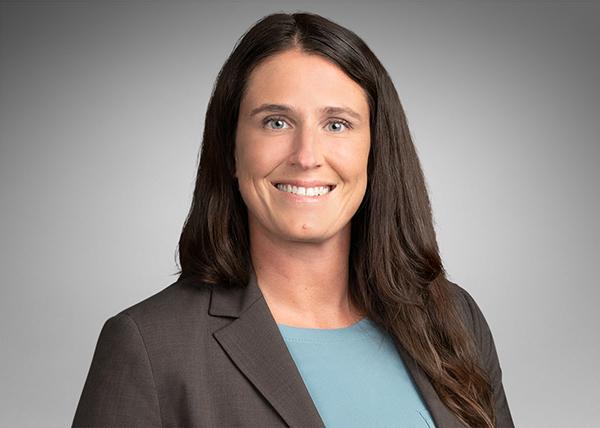Consumer products companies have been facing a surge of mislabeling lawsuits in the District of Columbia. These lawsuits are exploding in part due to recent court decisions that purport to grant “tester” plaintiffs—individuals and organizations that purchase products simply to test whether the representations about a product are true—a right to sue on behalf of the general public, even if the plaintiff was not actually deceived by the representations at issue and even if the plaintiff is not located in the District of Columbia. This update summarizes the unique challenges posed by these lawsuits and outlines potential defense strategies.
1. District of Columbia Law Purports to Allow Certain Individuals and Organizations to Assert Mislabeling Claims on Behalf of the General Public.
The District of Columbia Consumer Protection Procedures Act (CPPA) generally prohibits misleading or deceptive practices. The CPPA also purports to permit individuals, nonprofit organizations, or public-interest organizations to pursue violations of the CPPA “involving consumer goods or services that the organization purchased or received in order to test or evaluate qualities pertaining to use for personal, household, or family purposes.” D.C. Code § 28-3905(k)(1). Such lawsuits may seek relief not merely on behalf of the organization and its members, but also on behalf of the general public.
2. Recent Court Decisions Purport to Allow "Testers" to Sue Even if They Have Not Actually Been Misled, Prompting an Explosion of Litigation.
For many years, it was thought that the CPPA’s provisions granting a cause of action to “test or evaluate qualities” only applied to individuals or organizations that had actually been misled. But in The Praxis Project v. The Coca-Cola Co., 2019 WL 11583140, at *8 (D.C. Super. Ct. Oct. 1, 2019), a trial court held that the CPPA’s “tester standing” provisions allow customers who purchase products for the purpose of determining whether those products are what they claim to be to file suits against allegedly untruthful merchants. The court held that testers may bring these claims even if they were not actually misled. This holding would allow non-profit and public interest organizations to bring suits on behalf of consumers generally, even where the organization itself is not a member of the consuming (and allegedly deceived) public.
In the 14 months following the Praxis decision, dozens of lawsuits have been filed by individuals and organizations seeking to take advantage of its novel and expansive interpretation of the CPPA’s “tester” cause of action.
3. Companies Face Unique Challenges When Sued under the District of Columbia’s "Tester" Cause-of-Action Provisions.
Although mislabeling lawsuits are not new challenges, companies sued in the District of Columbia by “tester” organizations face several unique challenges:
- No class certification required. CPPA claims may be brought on behalf of the general public. As a result, plaintiffs can seek relief on behalf of a broad group of individuals—and threaten companies with class-action-like exposure—without satisfying the requirements to certify a class.
- Removal to federal district court. Although these cases resemble class actions, some plaintiffs have successfully opposed defendants’ efforts to remove them to federal court under the Class Action Fairness Act. And when defendants attempt removal based on ordinary diversity jurisdiction, organizations have successfully argued in some cases that the amount-in-controversy requirement is not met because that amount must be divided among the entire general public. While these cases are not persuasive, they present hurdles to removing CPPA claims to federal court.
-
Prevailing on motions-to-dismiss. As with other states’ consumer protection statutes, there are hurdles to dismissing CPPA claims at the pleading stage. Liability under the CPPA can turn on how a reasonable consumer would view and understand the alleged deceptive practice. The CPPA also does not require a plaintiff to prove that the defendant intended to make misleading representations.
4. Companies Need Creative Strategies to Defeat CPPA Lawsuits Brought by "Testers."
Given the challenges facing companies sued by “tester” organizations, companies should consider creative arguments to defeat CPPA claims. For example, Article III’s standing and personal jurisdiction requirements apply in the District of Columbia’s local courts to the same extent as in federal district courts. Therefore, even if a tester has statutory standing under the CPPA, the tester’s lawsuit still should be dismissed if the tester cannot show an injury-in-fact or that the court has personal jurisdiction over a defendant.
Additionally, tester plaintiffs often seek injunctive relief. But courts, including the Second Circuit, have held that injunctive relief is unavailable to past purchasers who cannot show that they would personally be deceived by the product’s packaging in the future—an argument that should apply to tester plaintiffs who, having brought suit, are necessarily on notice of the alleged deception.
Finally, CPPA claims can be subject to heightened pleading requirements applicable to fraud claims. Tester plaintiffs, who have not been personally affected by the allegedly mislabeled products, often struggle to plead with particularity matters such as the time, place, and content of the alleged misrepresentation, as well as what was lost as a result of the fraud.
If you have any questions concerning the material discussed in this update, please contact the following members of our Class Action Litigation and Food, Drug and Device practices.
Back
Back










